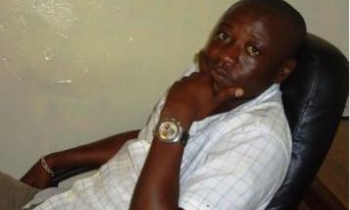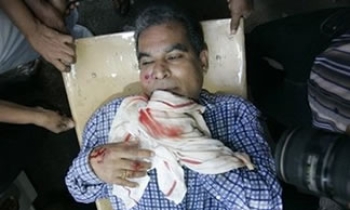KABUL -- Afghan President Hamid Karzai was under growing pressure on Tuesday to intervene in the case of an editor jailed for two years for blasphemy after clerics accused him of questioning Islamic law.
The world's top media rights groups joined Afghan journalists in urging Karzai to intercede after a court sentenced Ali Mohaqiq Nasab, editor of the monthly magazine Haqoq-e-Zan (Women's Rights), at the weekend.
Nasab, 50, was arrested at the beginning of the month after conservative clerics complained about his magazine to the Supreme Court, which in turn asked the public prosecutor's office to arrest him.
Articles, including some by an Iranian scholar, criticized the stoning of Muslims who convert to another religion and the use of corporal punishment for offenses such as adultery, Reporters Without Borders said.
"President Karzai must intercede to obtain Nasab's release and have this miscarriage of justice corrected," the Paris-based media group said in a statement.
In an open letter to the president, the International Federation of Journalists said that it was outraged by the court's decision and believed that the judicial process had been illegal and immoral.
"The case is currently in the appeal process and we urge you to instruct the relevant authorities to follow the mandate of Afghan legislation providing for press freedom, and drop all charges against Nasab immediately," it said.
The New York-based Committee for the Protection of Journalists said in a statement: "We condemn this disturbing ruling and urge authorities to overturn this conviction and release Nasab at once."
The Afghanistan Independent Journalists Association has complained that the court should not have been involved in the matter as it had been ruled on by a government-appointed commission set up to try media offences.
The commission, headed by information minister Sayed Makhdom Raheen, stripped Nasab of the title of chief editor but recommended that the blasphemy charges be dropped.
Raheen had told the association that he planned to meet Karzai on Tuesday about the case, the group's president Rahimullah Samander said.
The UN mission in Afghanistan (UNAMA) has also said that it is concerned about the case.
"UNAMA believes the right to freedom of expression, which is enshrined in the constitution of Afghanistan as well as the universal declaration of human rights ... should be strongly defended," spokesman Adrian Edwards said on Monday.









